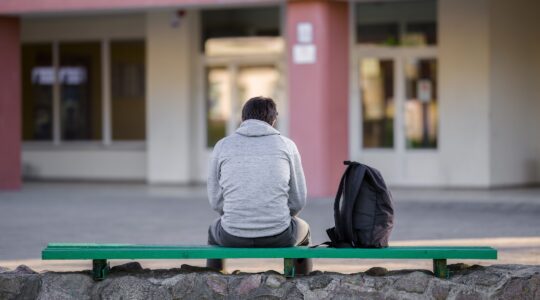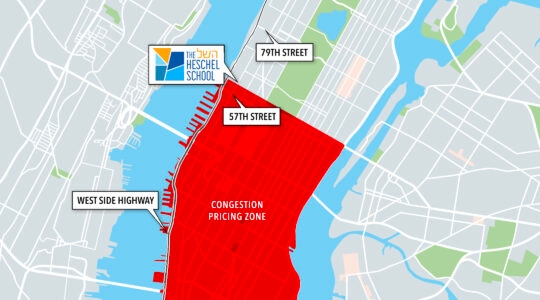Recent weeks have seen a considerable amount of coverage focusing on whether Sen. Barack Obama has too many friends with an anti-American bias, notably his longtime pastor, Jeremiah Wright, whom Obama has finally renounced, and William Ayers, a Chicago professor who was a 1960s radical with the Weathermen terrorist group, a friendship Obama dismissed as casual.
But if Wright and Ayers have been thoroughly explored in primary debates and interviews, Obama’s other relationships with radicals have been relatively unexplored.
For example, the Los Angeles Times devoted a lengthy front-page story (April 10) by Peter Wallsten headlined, “Allies of Palestinians see a friend in Barack Obama. They consider him receptive despite his clear support of Israel.” The story was not picked up by any other American paper. It is rather unusual for a major daily to think a story worthy of front-page coverage and no other paper to share that assessment.
The story focused on Obama’s time as an Illinois state legislator, just five years ago, when he was friends, if not allied, with Rashid Khalidi, the vocal anti-Zionist professor at Columbia University who at the time was living in Obama’s Chicago district; Edward Said, the late anti-Zionist professor and member of the Palestinian Authority legislature; and Ali Abunimah, a resident of Obama’s district and editor of the Electronic Intifada online journal.
At a farewell party for Khalidi, Obama is quoted as saying that his conversations with Khalidi had been “consistent reminders to me of my own blind spots and my own biases.”
Wallsten writes, the Obama-Khalidi relationship “have left some Palestinian American leaders believing that Obama is more receptive to their viewpoint than he is willing to say.”
They base that belief on his presence at “events where anger at Israeli and U.S. Middle East policy was freely expressed,” not unlike those who wonder about Obama’s truest self after his relationship with Wright and his anger.
“I am confident that Barack Obama is more sympathetic to the position of ending the occupation than either of the other candidates,” said Hussein Ibish, a senior fellow for the American Task Force on Palestine, to Wallsten.
The foreign minister of Hamas has recently endorsed Obama for president, another story that has sunk like a stone, barely reported other than by Fox and WorldNetDaily, even though Sen. John McCain brought it up on the campaign trail.
In 1998, reports Wallsten, Obama attended a speech by Edward Said in which Said called for a nonviolent campaign “against settlements, against Israeli apartheid.” Later, Obama and his wife were photographed at dinner with Said. “If only Obama could burn this picture,” writes Al Ahram, but the Cairo paper printed the picture anyway.
Abraham Foxman, national director for the Anti-Defamation League, told the Los Angeles Times, “In the context of [Obama] spending 20 years in a church” where anti-Israel rhetoric was repeated, “that’s what makes his presence at an Arab-American event with a Said a greater concern.”
Wallsten reports that Abunimah of Electronic Intifada said he heard Obama call for an “even-handed approach” toward Israel. In 2004, when Obama was running for the Senate, Abunimah quoted Obama as saying that he was sorry he wasn’t talking more about the Palestinian cause, but that his primary campaign had constrained what he could say. (Obama told Jewish leaders in Cleveland recently that a pro-Israel position is not necessarily a pro-Likud one.)
And yet Wallsten’s story of Obama’s Palestinian-American support, while burning up the blogosphere from the Huffington Post to The Nation to Zionist sites, received almost no coverage beyond that. It was reprinted on a Fox TV Web site in Seattle and was mentioned in the Jordan Times.
Obama has not been asked about it in the debates, and in meetings with Jewish communities in Cleveland and Philadelphia, where he has been asked repeatedly about Wright’s relationship with Louis Farrakhan but not about his own relationship with Electronic Intifada.
(Obama’s Palestinian-American friendships have been reported in The Jewish Week on several occasions, the first time in 2007.)
Wallsten told The Jewish Week, “Some people thought the [L.A. Times piece] shed a negative light on him, others thought it was favorable. We worked pretty hard to make sure it was fair and down the middle.”
Foxman told The Jewish Week that Obama’s Chicago-Palestinian connections “didn’t really bother me. They were the relationships a local politician has with all kinds of people in his community. They all don’t have to pass the Jewish litmus test. That’s part of politics. He reached out to pro-Israel elements too. But today, in the context of the other big issues, everything becomes magnified. You put all of his past relationships in a new light. Was he influenced? Everything raises more questions. But I don’t have a problem.”
Things change in a hurry in the Middle East.
Just last week, The Jewish Week reported that New York University’s plan to open a campus in Abu Dhabi, capital of the United Arab Emirates, was “being welcomed by NYU’s Israeli and Jewish faculty.”
Then, this week, the Middle East MENA Report (May 5), published by Al Bawaba, a media and technology group in Jordan and London, reports that Israeli businessman Lev Leviev, a major Chabad philanthropist, won’t be allowed to open his jewelry stores in Dubai, the second-largest city in the United Arab Emirates, because his company had a hand in “settlement construction in the Israeli-occupied West Bank,” including East Jerusalem.
According to Gulf News, a UAE paper, Leviev is accused of supporting Israeli charities that use “strong-arm tactics” and of “profiteering from building Jewish colonies on occupied Palestinian land, illegal under international law.”
Gulf News reported that Ali Ebrahim, a Dubai executive, said Israeli citizens were not allowed to operate in Dubai, even through non-Israeli partners; “there are no loopholes.”
Lawrence Schiffman, an Orthodox Jew and chairman of NYU’s Department of Hebrew and Judaic Studies, told The Jewish Week, “NYU would not go there without the right to have Israelis come to the campus.”
But in New York magazine (April 13), the local UAE leaders seemed more defiant than Schiffman let on. “NYU was aware of our local culture and rules and guidelines, and our policies on Israelis or homosexuality were clearly not a concern for them,” said Mubarak Al Shamesi, of the Abu Dhabi Education Council.
Schiffman told The Jewish Week, after the news on Leviev, “NYU negotiated for its rights on campus,” not beyond. “I have to admit,” said Schiffman, “we took a minimalist view.”
The New York Jewish Week brings you the stories behind the headlines, keeping you connected to Jewish life in New York. Help sustain the reporting you trust by donating today.




